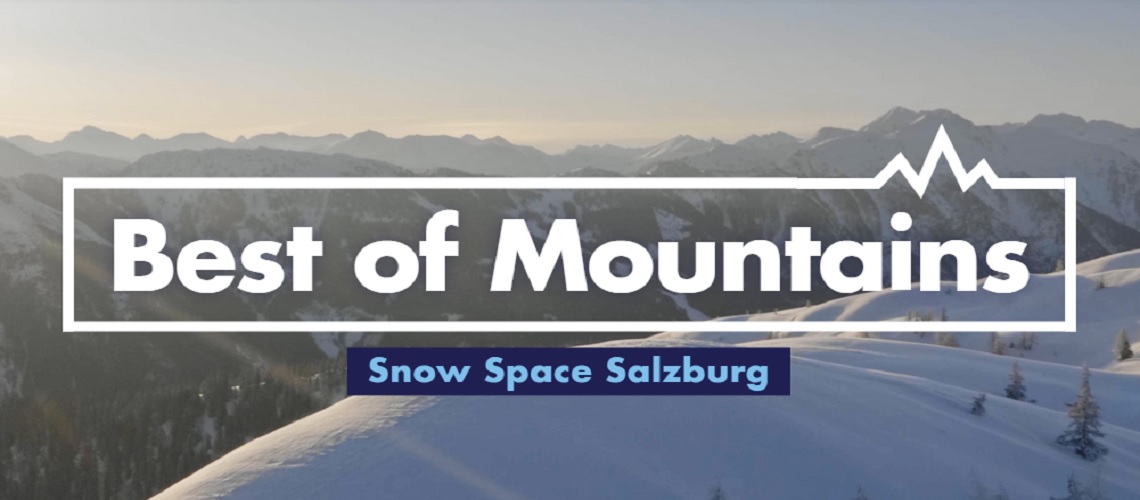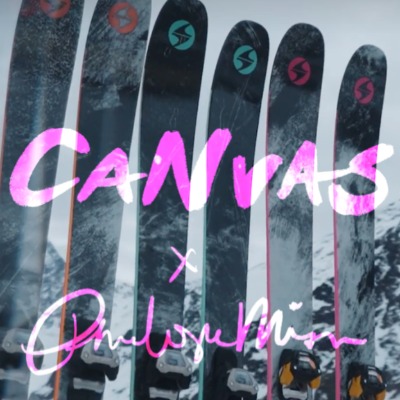Snow Space Salzburg Appoints Eco Advisory Board For More Sustainability & Greater Biodiversity

Snow Space Salzburg in Flachau, Wagrain and St. Johann/Alpendorf presented its advisory board for the environment, climate and biodiversity at the Haibenalm. The committee will have maximum influence on the decisions relevant to ecology and climate in the ski area, confirmed the CEO of Snow Space Salzburg Bergbahnen AG, Ing. Wolfgang Hettegger. The chair of the advisory board is Dr. Ulrike Pröbstl-Haider, university professor for landscape development at the University of Natural Resources and Life Sciences in Vienna, who has been dealing with the subject of ski tourism and natural space for decades.
The other two members are the expert for vegetation technology and greening in the Alps, Univ.-Prof. em dr Florin Florineth, who also taught at BOKU until his retirement, and Prof. Dr. Thomas Bausch, Head of the Alpine Research Institute in Seeshaupt (Bavaria) and Director of the Competence Center for Tourism and Mobility at the Free University of Bozen. He is an expert in destination management and also deals with the connection between climate change and the development of ski areas.
The team has already started its work. The slopes in Flachau and St. Johann/Alpendorf were mapped in order to obtain a scientific basis for improving biodiversity. This investigation will be completed in Wagrain next year.
Wolfgang Hettegger emphasized the strategic importance of the advisory board for his company. “We want to develop our ski area towards maximum sustainability. Experts who bring in their skills with knowledge of our industry but with an outside perspective are a great help. They support us in making the right decisions for the future,” emphasized Hettegger. The Advisory Board bundles know-how and experience to an extent that can hardly be surpassed at the moment. He sees the team of experts at work with full vigor and is ready to face this debate and to make decisions in the interests of the advisory board, wherever possible.
Ulrike Pröbstl-Haider, who is also co-editor of the report "Tourism and Climate Change" supported by the Climate and Energy Fund, pointed out that winter sports destinations are both the cause of and affected by climate change. It is therefore also understandable that the cable cars in particular have a special interest in reducing their emissions and becoming a pioneer in tourism. A 0-emission ski day on site can be achieved by the cable car companies. Pröbstl reminded that 80 percent of the CO2 emissions during summer and winter holidays in Austria are caused by travel to and from the destination. By choosing their means of travel, travelers could show a sense of responsibility for climate protection. The advisory board will advise on how more climate-friendly travel behavior can be triggered. Snow Space Salzburg has set the first incentives for car-free mobility during the holiday through cooperation with the ÖBB and through the regional ski bus network. However, the necessary change in behavior is a longer-term process.
Furthermore, cable car companies could have a positive influence on the biological diversity of ski areas, Pröbstl explained. Research work would show that with special expertise and less pressure of use, biodiversity can be increased. Pröbstl is of the opinion that biologically valuable areas could be created even on structurally modified pistes through suitable summer management. The vegetation mapping of the ski area creates the scientific basis for planting the first test areas with flower and herb-rich seeds. They have also started to train the cable car employees and are discussing the advantages of a changed summer management with the landowners.
According to Pröbstl, climate neutrality, biological diversity and changes in guest behavior are the three pillars for the work of the advisory board. He wants to proactively identify fields of action and provide professional support for change processes. The expert pointed out that rapid success is not possible in the mountains due to the altitude, but only consistent development leads to success.
Florineth: Species-rich vegetation on slopes increases biodiversity in ski areas
The expert for vegetation technology and greening in alpine areas, Prof. Florin Florineth, made no secret of the fact that the mapping of the plant communities in the ski area and the site visit show that there is a need for action. The aim is to determine a suitable management system for each location, which, in addition to mowing twice, also provides for the combination of mowing and grazing. In addition, Florineth would like to strengthen diversity through the use of special herbal and flower-rich seed mixtures. The expert also suggests greening the flat roofs of the cable car stations and machine halls, provided they are not used to generate energy in the area. The biological conversion of the used areas must be accompanied by training in order to secure the changes in the medium and long term.
Bausch: The offer has to adapt to the general conditions.
The tourism expert Prof. Thomas Bausch emphasized that climate neutrality and sustainability are gaining in importance for the guests of the winter sports areas. In the future, more sustainability and commitment to climate protection and climate-friendly mobility at the holiday destination would be required of the cable cars, hotels and gastronomy. Tourism cannot escape this development, which is now challenging all sectors. Even if the guests currently still have vague images of sustainability and climate protection on vacation, the expectations are high. Greenwashing is often assumed to be caused by marketing. Credible, climate-friendly business will therefore rapidly develop into a competitive factor.
This is particularly important for winter tourism. According to Bausch, its target group, which is still largely determined by the baby boomers, is already changing. For example, the number of German households that go skiing and afford a one-week winter holiday in the Alps is decreasing. Today, half of Germans travel to warm-water destinations between November and March, and a quarter are drawn to the Alps. Anyone who now acts consistently and credibly with climate neutrality and sustainability can win back guests. Because in winter, air travel and cruises in warm regions are particularly harmful to the climate.
The Snow Space Salzburg ski area in Flachau, Wagrain and St. Johann offers its guests 120 kilometers of pistes, 45 powerful and comfortable cable cars and 100 percent snow guarantee throughout the winter season. The cable car companies employ 300 people in 25 professions (annual average). Since the ski areas of Flachauwinkl/Kleinarl and Flachauwinkel/Zauchensee were connected, more than 200 connected kilometers of pistes have opened up to winter sports enthusiasts.













